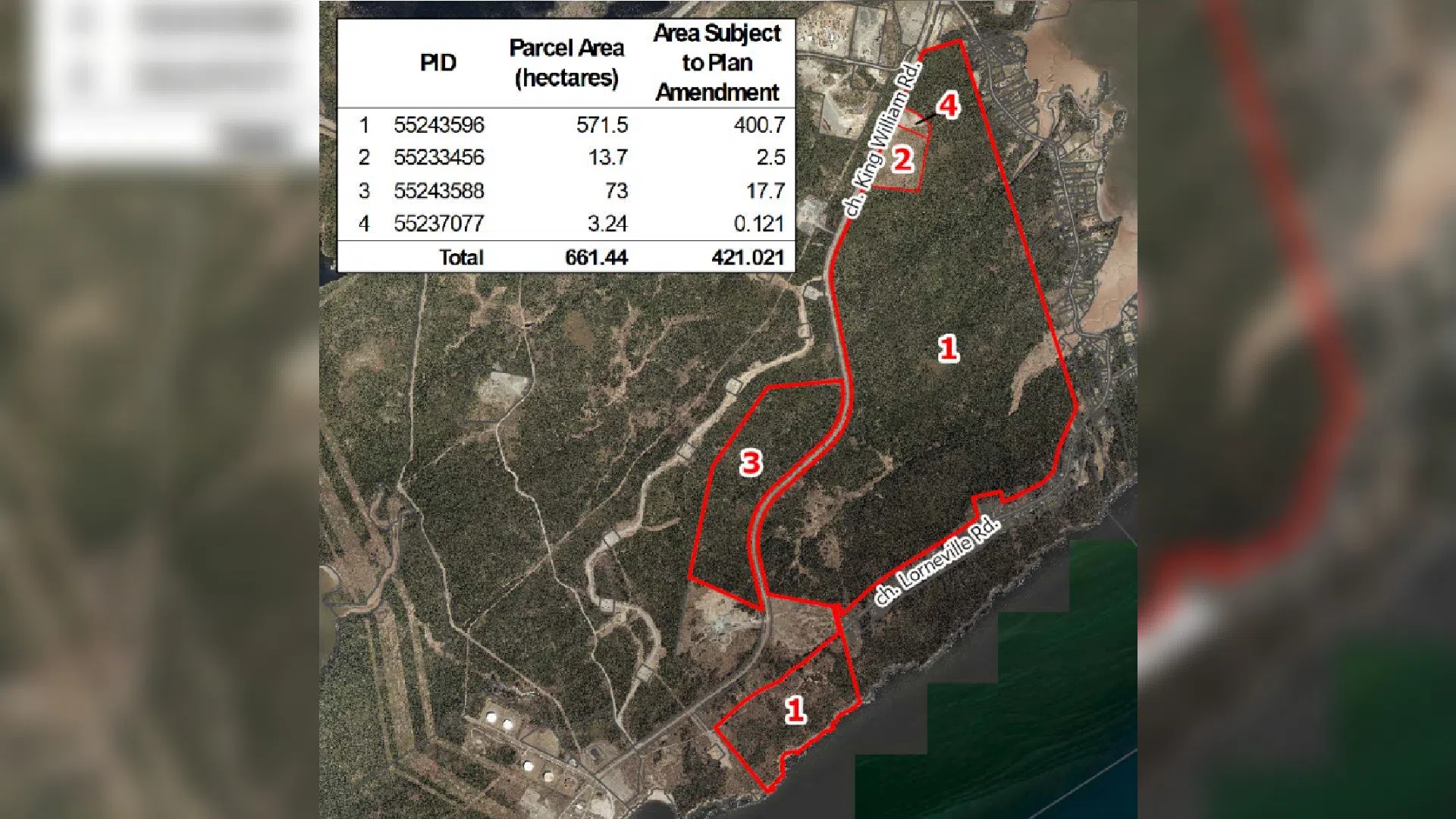The public hearing for a proposed industrial park expansion in Saint John’s Lorneville community continued for a second night on Tuesday.
Dozens packed council chambers to express their opposition to the controversial proposal for the Spruce Lake Industrial Park.
The city wants to add more than 1,500 acres of land to the industrial park, describing it as a once-in-a-generation opportunity.
However, many from the Lorneville community and beyond are not on board with the plan and have raised their concerns.
RELATED: Emotions high at Saint John industrial park expansion hearing
Jolene Maguire, one of several who spoke during Tuesday’s portion of the hearing, said this is not just another development deal.
“What’s at stake is the integrity of our city’s vision, the health of our ecosystems, the trust of the people who live here, the very future we leave behind for our children,” said Maguire.
“Not all growth is good growth. Economic development cannot and must not come at the expense of our health, our ecosystems or the democratic process that gives citizens a voice in shaping their communities.”
Concerns from residents
The proposal first came before the city’s planning advisory committee and council several months ago, but council directed staff to create a task force to facilitate further discussions after hearing overwhelming opposition from residents.
Staff came back to council Monday night with an updated application, which includes larger setbacks from residential areas.
Industrial buildings must be at least 250 metres from residential property lines, while any uses considered volatile would have a 500-metre setback. There will also be a permanent natural treed buffer area of 150 metres.
In addition, only “non-emitting industries” — those without smokestacks — would be allowed. Several land uses would be prohibited, asphalt plants, petroleum refineries, metal shredding and scrap or salvage yards.
RELATED: Saint John makes case for industrial park expansion
Council also heard that of the more than 500 hectares of land they are looking to add to the industrial park, less than half of it would actually be developed at full buildout.
Residents, however, made it clear to council that they were still not on board with the uncertainty surrounding what sort of industry could be going in their community.
They are also concerned about the loss of trees, the impact on wetlands and how any development could affect their well water.
Katrina Galbraith urged council to consider the broader implications of rezoning more than 1,500 acres of land for the industrial park.
“The scale of the industrial expansion raises serious concerns about the long-term livability and sustainability of Lorneville,” said Galbraith.
With more people in opposition still to speak at 10 p.m. — and council yet to hear from those who support the project — councillors voted to continue the public hearing in two weeks at a special meeting on June 3.
If they do approve the rezoning and municipal plan amendment, the province must still approve the environmental impact assessment (EIA) application.
Minister recuses himself from EIA process
New Brunswick’s environment minister has decided to recuse himself from the EIA process for this project, citing the potential for a perceived conflict of interest.
Gilles LePage is also the minister responsible for the Regional Development Corporation — the provincial Crown agency that currently owns the land in question.
LePage said that although government ministers are not directly involved in the EIA process, there may be a perceived conflict of interest given his dual roles.
“It’s clear that, in the interest of accountability and transparency, the best course of action for me as the minister of environment and climate change is to recuse myself from the environmental impact assessment process,” LePage said in a statement.
“I want to assure residents all potential impacts of the project will be appropriately reviewed. The deputy minister of environment and climate change will act on my behalf on this file going forward.”
LePage said project reviews are undertaken by a technical review committee of experts from provincial and federal agencies, regional service commissions and local governments.
No decisions on a project are made until all relevant technical issues have been addressed, the minister added.








